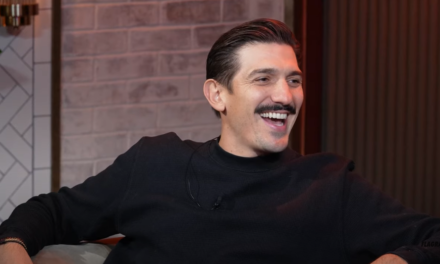In a striking revelation, a CBS employee has publicly expressed concerns regarding the potential cancellation of The Late Show with Stephen Colbert, labeling it a “chilling of free speech.” This assertion echoes sentiments from various sectors, illustrating a growing anxiety about the implications of censorship and the future of late-night television.
The Late Show, which has been a staple of late-night programming since its debut, has provided a platform for comedic commentary on politics, culture, and society. Stephen Colbert, renowned for his quick wit and incisive humor, has utilized his show to address significant issues, often taking aim at political figures and current events. His approach has garnered both acclaim and criticism, showcasing the contentious nature of public discourse.
The CBS employee, whose identity remains undisclosed, voiced their concerns in an internal communication that inadvertently reached the media. The comments articulate fears that canceling the show would set a precedent for silencing voices that challenge the status quo, particularly in an era fraught with social and political polarization.
This situation has sparked a broader debate about the role of media in a democratic society. Supporters of free expression argue that the cancellation of influential programming like The Late Show would substantially diminish the diversity of opinions available to the public. Late-night television, traditionally a platform for both entertainment and political critique, serves a unique role in shaping public perception and discourse.
Critics of the potential cancellation echo the CBS employee’s sentiments, citing the importance of having extended platforms for diverse voices, especially those that challenge dominant narratives. The argument posits that canceling shows primarily due to their political content or societal critique sets a dangerous standard that could lead to further limitations on expression across various media.
Moreover, Colbert’s show has often been a barometer for the political climate in the United States. Several episodes have tackled profound issues, such as civil rights, healthcare, and climate change, reaching millions of viewers and influencing conversations across the country. The idea of losing such a platform evokes fears of diminishing democratic engagement amongst the populace.
The response to the aforementioned comments from the CBS employee has been widespread. Advocates for freedom of speech have taken to social media, promoting hashtags that support Colbert and similar programs. The hashtag “#FreeColbert” has been trending, with fans and critics alike discussing the implications of losing the program.
In the broader context, this issue touches on the interplay between corporate interests and creative expression. Media companies, including CBS, are often influenced by advertisers and public relations considerations. As such, the potential for cancellation may stem from pressures to align more closely with commercial interests rather than editorial integrity.
Prominent voices in the media landscape have weighed in on this situation. Many comedians and political commentators have echoed the CBS employee’s sentiments, asserting that any form of censorship erodes the foundation of democracy. They argue that comedians and satirists provide invaluable perspectives that challenge mainstream narratives, and losing such platforms could undermine the public’s ability to engage critically with important issues.
The conversation surrounding the future of late-night television is reflective of a more extensive societal dialogue about freedom of expression. In recent years, there have been increasing concerns about “cancel culture,” a phenomenon that refers to the practice of withdrawing support for individuals or organizations after they have committed controversial acts or expressed unpopular opinions. Critics often argue that such actions hinder genuine discourse and threaten diverse thought.
This discourse brings to light the responsibility of media organizations to uphold journalistic integrity, especially in tumultuous times. Comedians, and particularly late-night hosts like Colbert, often walk a tightrope between humor and the harsh realities of political discourse. Their ability to address significant societal issues through comedy is viewed by many as an essential aspect of a healthy, functioning democracy.
Industry insiders indicate that CBS has yet to make an official announcement regarding The Late Show’s future. Rumors of a cancellation have led to heightened speculation and concern among staff and viewers alike. As ratings fluctuate and the competitive landscape of late-night television evolves, the decisions made by networks regarding their programming will undoubtedly shape public discourse.
The fate of Stephen Colbert’s show is emblematic of larger trends in the entertainment industry, where content decisions can have far-reaching implications for culture and society. It serves as a reminder of the delicate balance between business interests and the fundamental principles of free expression.
In conclusion, the CBS staffer’s assertion that the cancellation of The Late Show would represent a chilling of free speech raises pressing questions about the state of media in America. As late-night television continues to evolve in response to changing cultural landscapes and audience preferences, the importance of preserving diverse voices in entertainment cannot be overstated. Ensuring that platforms for comedic and political critique remain intact is crucial for fostering a vibrant democratic culture.
As viewers await clarification on the future of The Late Show with Stephen Colbert, the conversation surrounding censorship, free speech, and the role of media continues to grow in significance. The implications of this discussion extend well beyond late-night programming, highlighting the essential need for open dialogue in a democracy that values diverse perspectives and dissenting voices.
































